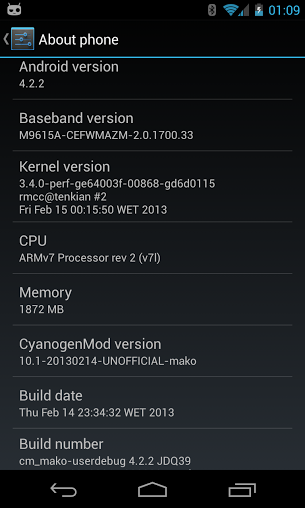

- #Filebeats nightlies hash how to
- #Filebeats nightlies hash archive
- #Filebeats nightlies hash full
- #Filebeats nightlies hash download
# List of root certificates for HTTPS server verifications # Optional protocol and basic auth credentials.

# Enabled ilm (beta) to use index lifecycle management instead daily indices. # Configure what output to use when sending the data collected by the beat. # You can find the `cloud.id` in the Elastic Cloud web UI. # The cloud.id setting overwrites the `` and # These settings simplify using filebeat with the Elastic Cloud (). # ID of the Kibana Space into which the dashboards should be loaded. # In case you specify and additional path, the scheme is required: # IPv6 addresses should always be defined as: #host: "localhost:5601" # Scheme and port can be left out and will be set to the default (http and 5601) # This requires a Kibana endpoint configuration. # Starting with Beats version 6.0.0, the dashboards are loaded via the Kibana API.
#Filebeats nightlies hash archive
# versions, this URL points to the dashboard archive on the

# has a value which is computed based on the Beat name and version.
#Filebeats nightlies hash download
# The URL from where to download the dashboards archive. # options here, or by using the `-setup` CLI flag or the `setup` command. # the dashboards is disabled by default and can be enabled either by setting the # These settings control loading the sample dashboards to the Kibana index. # Optional fields that you can specify to add additional information to the # The tags of the shipper are included in their own field with each # all the transactions sent by a single shipper in the web interface. # The name of the shipper that publishes the network data. # Period on which files under path should be checked for changes # Note: After is the equivalent to previous and before is the equivalent to to next in Logstash # that was (not) matched before or after or as long as a pattern is not matched based on negate. It is used to define if lines should be append to a pattern # Match can be set to "after" or "before". # Defines if the pattern set under pattern should be negated or not. The example pattern matches all lines starting with [ # The regexp Pattern that has to be matched. # for Java Stack Traces or C-Line Continuation # Multiline can be used for log messages spanning multiple lines. # to add additional information to the crawled log files for filtering # are matching any regular expression from the list. # matching any regular expression from the list. # Paths that should be crawled and fetched. # Change to true to enable this input configuration. # Below are the input specific configurations. # you can use different inputs for various configurations. Most options can be set at the input level, so # For more available modules and options, please see the sample
#Filebeats nightlies hash full
# You can find the full configuration reference here: The file from the same directory contains all the # This file is an example configuration file highlighting only the most common Step-2) Configure filebeat.yml config fileĬheckout filebeat.yml file. rw- 1 root root 7714 Mar 21 14:33 filebeat.yml % Total % Received % Xferd Average Speed Time Time Time Currentġ00 11.1M 100 11.1M 0 0 13.2M 0 -:-:-:-:-:-:- tar xzvf cd ls -ltra
#Filebeats nightlies hash how to

Splunk is one of the alternative to forward logs but it’s too costly. Over last few years, I’ve been playing with Filebeat – it’s one of the best lightweight log/data forwarder for your production application.Ĭonsider a scenario in which you have to transfer logs from one client location to central location for analysis.


 0 kommentar(er)
0 kommentar(er)
